Overture in music was originally the instrumental introduction to a ballet, opera, or oratorio in the 17th century. During the early Romantic era, composers such as Beethoven and Mendelssohn composed overtures which were independent, self-existing instrumental, programmatic works that foreshadowed genres such as the symphonic poem. These were "at first undoubtedly intended to be played at the head of a programme".
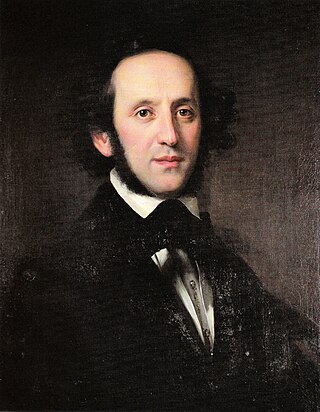
Jakob Ludwig Felix Mendelssohn Bartholdy, born and widely known as Felix Mendelssohn, was a German composer, pianist, organist and conductor of the early Romantic period. Mendelssohn's compositions include symphonies, concertos, piano music, organ music and chamber music. His best-known works include the overture and incidental music for A Midsummer Night's Dream, the Italian Symphony, the Scottish Symphony, the oratorio St. Paul, the oratorio Elijah, the overture The Hebrides, the mature Violin Concerto and the String Octet. The melody for the Christmas carol "Hark! The Herald Angels Sing" is also his. Mendelssohn's Songs Without Words are his most famous solo piano compositions.

Fanny Mendelssohn was a German composer and pianist of the early Romantic era who was also known as Fanny (Cäcilie) Mendelssohn Bartholdy and, after her marriage, Fanny Hensel. Her compositions include a piano trio, a piano quartet, an orchestral overture, four cantatas, more than 125 pieces for the piano, and over 250 lieder, most of which went unpublished in her lifetime. Although praised for her piano technique, she rarely gave public performances outside her family circle.

Johanna Maria "Jenny" Lind was a Swedish opera singer, often called the "Swedish Nightingale". One of the most highly regarded singers of the 19th century, she performed in soprano roles in opera in Sweden and across Europe, and undertook an extraordinarily popular concert tour of the United States beginning in 1850. She was a member of the Royal Swedish Academy of Music from 1840.
This article is about music-related events in 1829.
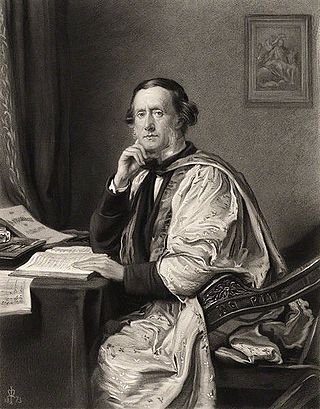
Sir William Sterndale Bennett was an English composer, pianist, conductor and music educator. At the age of ten Bennett was admitted to the London Royal Academy of Music (RAM), where he remained for ten years. By the age of twenty, he had begun to make a reputation as a concert pianist, and his compositions received high praise. Among those impressed by Bennett was the German composer Felix Mendelssohn, who invited him to Leipzig. There Bennett became friendly with Robert Schumann, who shared Mendelssohn's admiration for his compositions. Bennett spent three winters composing and performing in Leipzig.

Elijah, Op. 70, MWV A 25, is an oratorio by Felix Mendelssohn depicting events in the life of the Prophet Elijah as told in the books 1 Kings and 2 Kings of the Old Testament. It premiered on 26 August 1846.

André George(s) Louis Onslow was a French composer of English descent. His wealth, position and personal tastes allowed him to pursue a path unfamiliar to most of his French contemporaries, more similar to that of his contemporary German romantic composers; his music also had a strong following in Germany and in England. His principal output was chamber music, but he also wrote four symphonies and four operas. Onslow was esteemed by critics of his time, but his reputation declined swiftly after his death. It has only been revived in recent years.

The Symphony No. 5 in D major/D minor, Op. 107, known as the Reformation, was composed by Felix Mendelssohn in 1830 in honor of the 300th anniversary of the Presentation of the Augsburg Confession. The Confession is a key document of Lutheranism and its Presentation to Emperor Charles V in June 1530 was a momentous event of the Protestant Reformation. This symphony was written for a full orchestra and was Mendelssohn's second extended symphony. It was not published until 1868, 21 years after the composer's death – hence its numbering as '5'. Although the symphony is not very frequently performed, it is better known today than when it was originally published. Mendelssohn's sister, Fanny Mendelssohn Hensel, chose the name Reformation Symphony.
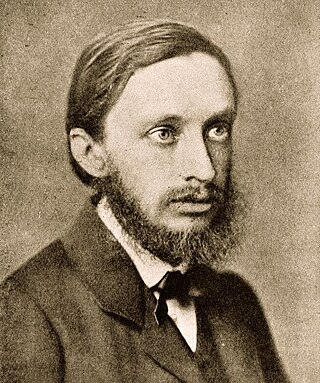
Hermann Gustav Goetz was a German composer who spent much of his career in Switzerland. He is best known for his 1872 opera Der Widerspänstigen Zähmung, based on Shakespeare's The Taming of the Shrew.
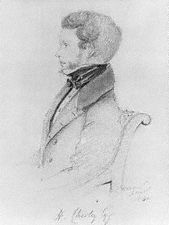
Henry Fothergill Chorley was an English literary, art and music critic, writer and editor. He was also an author of novels, drama, poetry and lyrics.

Hugo Wilhelm Ludwig Kaun was a German composer, conductor, and music teacher.
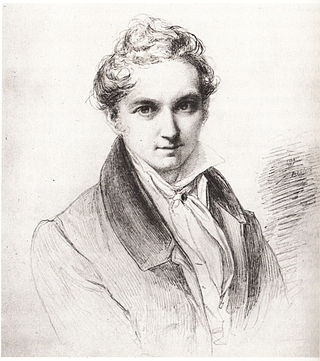
Wilhelm Hensel was a German painter, brother of Luise Hensel, husband to Fanny Mendelssohn, and brother-in-law to Felix Mendelssohn.

August Wilhelm Julius Rietz was a German composer, conductor, cellist, and teacher. His students included Woldemar Bargiel, Salomon Jadassohn, Arthur O'Leary, and Sir Arthur Sullivan. He also edited many works by Felix Mendelssohn for publication.
The Hebrides is a concert overture that was composed by Felix Mendelssohn in 1830, revised in 1832, and published the next year as Mendelssohn's Op. 26. Some consider it an early tone poem.

The Tempest incidental music, Op. 1, is a set of movements for Shakespeare's play composed by Arthur Sullivan in 1861 and expanded in 1862. This was Sullivan's first major composition, and its success quickly brought him to the attention of the musical establishment in England.

The Mendelssohn family are the descendants of Mendel of Dassau. The German Jewish philosopher Moses Mendelssohn and his brother Saul were the first to adopt the surname Mendelssohn. The family includes his grandson, the composer Felix Mendelssohn and his granddaughter, the composer Fanny Mendelssohn.

Christian Gerhaher is a German baritone and bass singer in opera and concert, particularly known as a Lieder singer.

Sebastian Ludwig Felix Hensel was a German landowner, entrepreneur and author.
Johannes Woldemar Gelbke was a German composer, choir lieder, conductor and singer He became known especially in Germany for his song Horch! Die alten Eichen rauschen... ("Heimkehr"). He also worked as a composer, conductor, choirmaster and singer in the US, where he lived and worked from 1882.
















